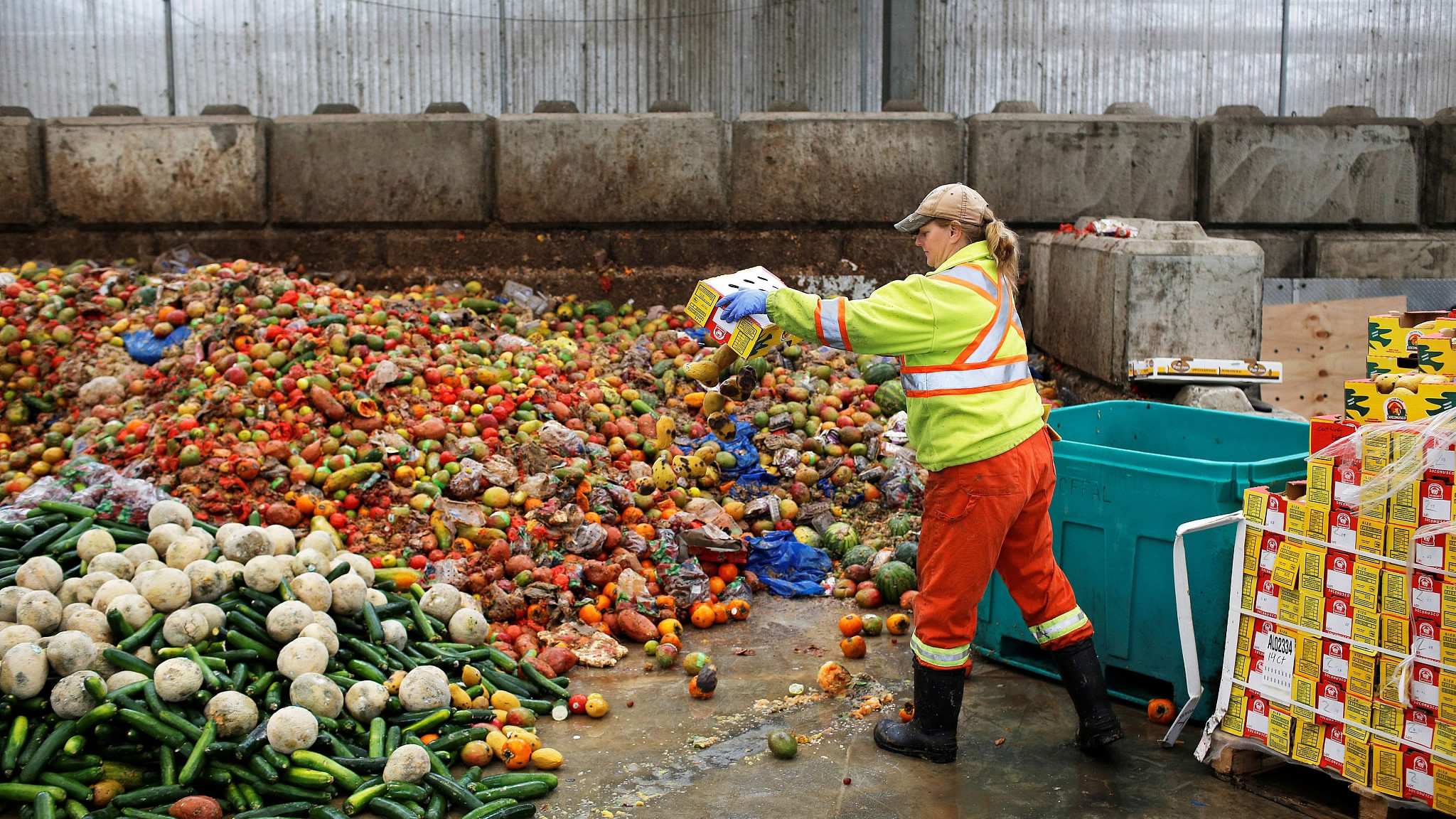
Tech & Sci
14:56, 19-Apr-2018
Europe votes to reduce 88m tons of food waste by 50 percent by 2030
Alok Gupta

European Parliament, in a major decision on Wednesday, voted to reduce food waste by 50 percent by 2030. Lawmakers also backed a mechanism, obliging member states to report food waste.
The European Union (EU) as a part of United Nations Sustainable Development (SDG) goals is working on creating a circular economy to reduce waste. The Waste Framework Directive that deals with municipal, food and other waste, targets at nearly abolishing landfills.
Lead Member of European Parliament (MEP), Simona Bonafe pointed out that this package to reduce food waste proposed under the draft law also contains essential measures on waste management. At the same time, the draft goes further, by defining rules taking into account the entire lifecycle of a product.
The non-binding target directs member states to aim to reduce food waste by 30 percent by 2025 and 50 percent by 2030. Member states will provide incentives to prevent food waste, collection of unsold food products and their safe re-distribution.
Lawmakers also stressed the need to raise consumer awareness of the meaning of “use by” and “best before” labels as a priority. "Europe is firmly committed to sustainable economic and social development, which will at last integrate industrial policies and environmental protection”, said lead Member of European Parliament, Simona Bonafe. In industrialised countries, over 40 percent of food waste occurs at retail and consumer level.
Studies commissioned by the EU claim that around 88 million tons of food worth 143 billion euros is wasted annually in Europe. Nearly 10 percent of the total food waste generated annually in the EU is linked to date marking, the study revealed. Consumers are often confused by terms like “use by” and “best before” marked on packaged food products.
“The (European) Commission is considering possible options to simplify date marking on foodstuffs and promote better understanding and use of date marking by all actors concerned,” lawmakers maintained.
Landfill likely to be dumped
Apart from food waste, the EU has set a target to reduce municipal waste –from households and businesses by at least 55 percent by 2025. The target to reduce this waste would be gradually raised to 60 percent by 2030 and 65 percent by 2035. For packaging waste, 65 percent of packaging materials will have to be recycled by 2025, and 70 percent by 2030.
Separate targets are set for specific packaging materials, such as paper and cardboard, plastics, glass, metal and wood. The draft law also drastically limits the share of municipal waste ending up in landfills sites to a maximum of 10 percent by 2035.
Austria, Belgium, Denmark, Germany, the Netherlands and Sweden have managed to reduce waste dumping at landfills to nearly zero. However, Cyprus, Croatia, Greece, Latvia and Malta still landfill more than three quarters of their municipal waste, EU maintained.
[Top Image: A worker dumps pre-consumed food waste before it is fed to black soldier fly larvae at the Enterra Feed Corporation in Langley, British Columbia, Canada, March 14, 2018. /VCG Photo]

SITEMAP
Copyright © 2018 CGTN. Beijing ICP prepared NO.16065310-3
Copyright © 2018 CGTN. Beijing ICP prepared NO.16065310-3